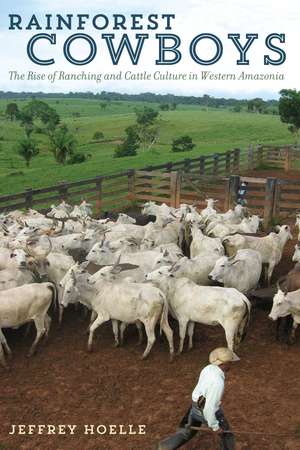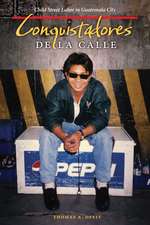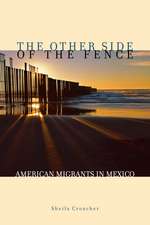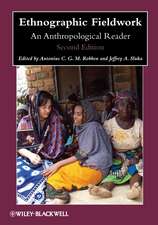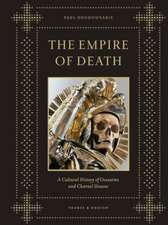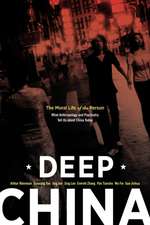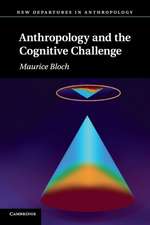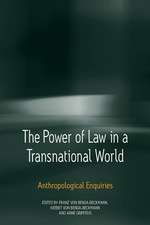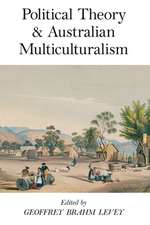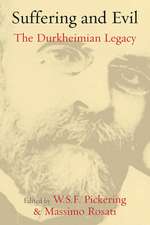Rainforest Cowboys: The Rise of Ranching and Cattle Culture in Western Amazonia: Latin American and Caribbean Arts and Culture Publication Initiative, Mellon Foundation
Autor Jeffrey Hoelleen Limba Engleză Paperback – 15 apr 2015
Winner, Brazil Section Book Award, Latin American Studies Association, 2016
The opening of the Amazon to colonization in the 1970s brought cattle, land conflict, and widespread deforestation. In the remote state of Acre, Brazil, rubber tappers fought against migrant ranchers to preserve the forest they relied on, and in the process, these “forest guardians” showed the world that it was possible to unite forest livelihoods and environmental preservation. Nowadays, many rubber tappers and their children are turning away from the forest-based lifestyle they once sought to protect and are becoming cattle-raisers or even caubois (cowboys). Rainforest Cowboys is the first book to examine the social and cultural forces driving the expansion of Amazonian cattle raising in all of their complexity.
Drawing on eighteen months of fieldwork, Jeffrey Hoelle shows how cattle raising is about much more than beef production or deforestation in Acre, even among “carnivorous” environmentalists, vilified ranchers, and urbanites with no land or cattle. He contextualizes the rise of ranching in relation to political economic structures and broader meanings to understand the spread of “cattle culture.” This cattle-centered vision of rural life builds on local experiences and influences from across the Americas and even resembles East African cultural practices. Written in a broadly accessible and interdisciplinary style, Rainforest Cowboys is essential reading for a global audience interested in understanding the economic and cultural features of cattle raising, deforestation, and the continuing tensions between conservation and development in the Amazon.
Preț: 157.98 lei
Nou
Puncte Express: 237
Preț estimativ în valută:
30.24€ • 32.86$ • 25.42£
30.24€ • 32.86$ • 25.42£
Carte tipărită la comandă
Livrare economică 21 aprilie-05 mai
Preluare comenzi: 021 569.72.76
Specificații
ISBN-13: 9781477310601
ISBN-10: 1477310606
Pagini: 212
Ilustrații: 19 b&w photos, 2 b&w maps, 6 b&w charts/graphs
Dimensiuni: 152 x 229 x 15 mm
Greutate: 0.25 kg
Editura: University of Texas Press
Colecția University of Texas Press
Seria Latin American and Caribbean Arts and Culture Publication Initiative, Mellon Foundation
ISBN-10: 1477310606
Pagini: 212
Ilustrații: 19 b&w photos, 2 b&w maps, 6 b&w charts/graphs
Dimensiuni: 152 x 229 x 15 mm
Greutate: 0.25 kg
Editura: University of Texas Press
Colecția University of Texas Press
Seria Latin American and Caribbean Arts and Culture Publication Initiative, Mellon Foundation
Notă biografică
Jeffrey Hoelle is Assistant Professor of Anthropology at the University of California, Santa Barbara.
Cuprins
List of Illustrations
List of Tables
Acknowledgments
1. The Journey to Acre
2. The Expansion of Cattle Raising in Acre
3. Ruminations on Cattle Economies and Cattle Cultures
4. Ideologies of Nature and Human–Environment Interactions
5. The Ranchers: Smooth Hands, Progress, and Production
6. The City and the Contri
7. Here’s the Beef: Symbol, Sustenance, and Hamburger Connections
8. Rubber-Tapper and Colonist Transitions: Environment, Practice, and Identity
9. The Appropriation of Cattle Culture: Perceptions, Behaviors, and Methodological Considerations
10. The Full Picture
Appendix A. Social Groups and Research Area
Appendix B. Methods and Data
Appendix C. Levels of Agreement among Social Groups
Notes
Works Cited
Index
List of Tables
Acknowledgments
1. The Journey to Acre
2. The Expansion of Cattle Raising in Acre
3. Ruminations on Cattle Economies and Cattle Cultures
4. Ideologies of Nature and Human–Environment Interactions
5. The Ranchers: Smooth Hands, Progress, and Production
6. The City and the Contri
7. Here’s the Beef: Symbol, Sustenance, and Hamburger Connections
8. Rubber-Tapper and Colonist Transitions: Environment, Practice, and Identity
9. The Appropriation of Cattle Culture: Perceptions, Behaviors, and Methodological Considerations
10. The Full Picture
Appendix A. Social Groups and Research Area
Appendix B. Methods and Data
Appendix C. Levels of Agreement among Social Groups
Notes
Works Cited
Index
Recenzii
"This complex, multivalenced historical ethnography of Acre state in the western Amazon unexpectedly portrays the rise of a Western-influenced cattle culture."
"Hoelle’s insightful depiction of Amazonian transformations offers solid ground over which others may critically advance some of his key arguments. . . . arguably the book’s most important contribution: it bridges the research agendas of scholars who often talk past one another. Rainforest Cowboys’s heterodox approach may be useful for a wide range of projects, from science and technology studies on emerging socio-natural entanglements to quantitative modeling of cultural beliefs. . . . Rainforest Cowboys will inspire anthropologists working in a range of fields to critically engage with Amazonia’s shifting ecologies."
"For scholars and students of the amazon region and cattle cultures, Rainforest Cowboys offers a compelling account of the cultural importance of cattle and beef. . . . his in-depth focus on the Brazilian state of acre can illuminate similar or contrasting cultural changes in other areas undergoing environmental change."
"L’auteur fait plus qu’éclairer l’agencement d’une culture née de l’expansion de l’élevage, il fournit une explication culturelle des freins à l’adoption d’une politique de préservationde la nature, peu compatible ici avec l’idéeque le progrès consiste justement à transformer la forêt. Bref, voilà un ouvrage riche etintelligent, rapidement résumé ici, à lire pourle bonheur de l’esprit, de la recherche, et pour la qualité de l’exposé."
"This book is an important contribution to literature on world cattle culture and Amazonian development...Anyone interested in the current state of the Amazon region, and its future, will find this book to be a valuable resource."
"With this book, Hoelle joins others who have begun to remedy that considerable gap in the literature by focusing on what he terms 'cattle culture' and how it modulates the social interactions of ranchers, cowboys, agricultural colonists, rubber tappers, environmentalists, and government officials in the Brazilian state of Acre."
"Rainforest Cowboys makes for delightful reading. . . . foreseeing political conflict and real problems for the ideal of rain forest preservation in Acre. . . . Jeff Hoelle explains these issues with the open-mindedness and astute analysis we should expect from really good cultural anthropology."
Descriere
This ambitious interdisciplinary study is the first to examine the interlinked economic uses and cultural practices and beliefs surrounding cattle in Western Amazonia, where cattle raising is at the center of debates about economic development and environ
